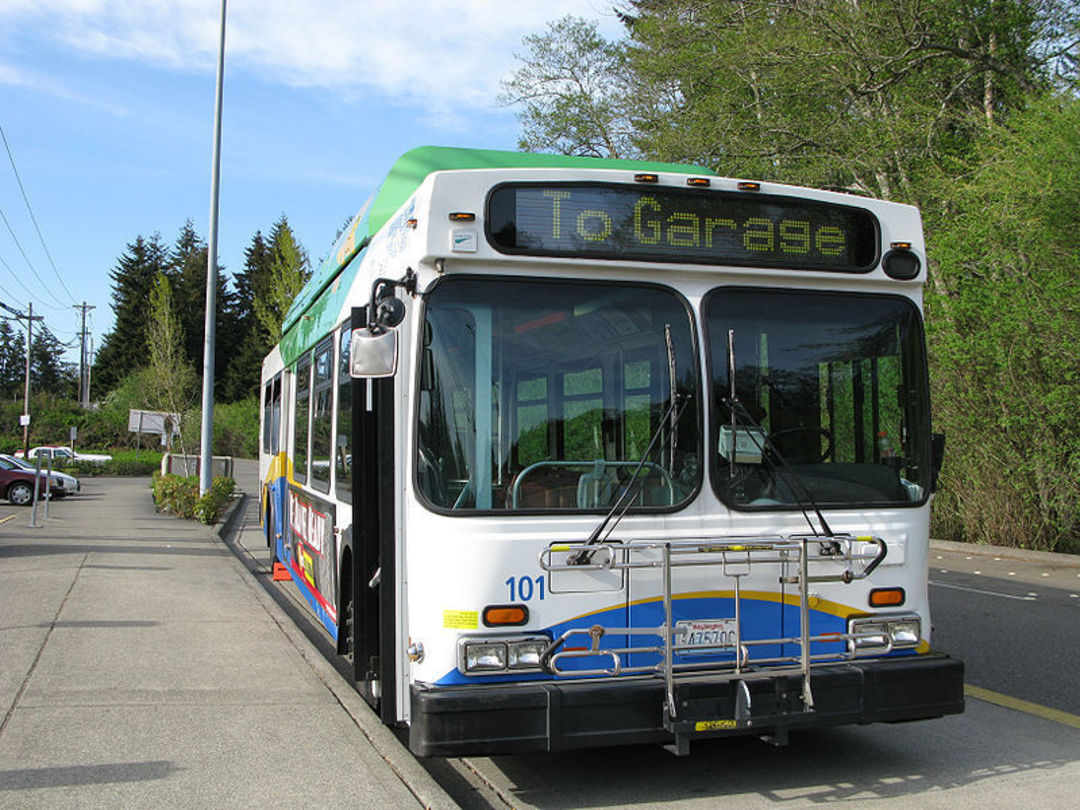Megaprojects, Metro Cuts, the Maloofs, and More

OOBT
1. Former state viaduct project manager Ron Paananen, whose appointment to head up an outside study of state megaprojects including the viaduct replacement project was criticized as a potential conflict of interest—will be paid as much as $325,000 to evaluate the state Department of Transportation's strategy for planning megaprojects, the News Tribune reports.
Another consultant, who was brought in to assuage concerns about Paananen's prior work at WSDOT, John Njord of Tom Warde & Associates, will be paid up to $125,000, for a total state expenditure of as much as $450,000.
2. Speaking of WSDOT: At Crosscut, former WSDOT secretary Doug MacDonald trashes the proposed $8.4 billion state transportation funding package, arguing that although legislators have paid lip service to the principle "fix it first," just 11 percent of the new dollars in the package would pay to maintain and preserve existing state highway and bridge infrastructure. The rest would go largely to new road projects like the Columbia River I-5 crossing between Washington and Oregon.
He also objects to money the package proposes spending on stormwater cleanup (on the grounds that stormwater is an environmental project, not a road project) and on the so-called Puget Sound Gateway, which centers on two big new highway projects that are supposed to help move freight to and from the Ports of Seattle and Tacoma.
Whether you agree with MacDonald or not, it's a detailed critique of the proposal (which Gov. Jay Inslee has named one of his three top priorities, according to the Spokesman-Review) from a guy with a lot of experience dealing with megaprojects and the legislature.
3. At 4:00 this afternoon, King County Metro will take public testimony on a potential 17 percent cut to bus service across the county.

Yesterday, the News Tribune reports, Pierce Transit's board got a similar earful from transit riders who accused the board of "messing with our [lives]" when they cut 28 percent from transit service in Pierce County.
The cuts, of course, wouldn't be necessary if Pierce County voters hadn't rejected a .3 percent sales tax increase last November—another reason basic services like transit shouldn't be subject to the whims of a majority who will never use it and thus don't want to pay for it.
4. No news on the Sonics stalemate today (the NBA's 30-member board of commissioners is scheduled to vote on whether to allow the Kings to relocate from Sacramento to Seattle tomorrow, after a seven-member subcommittee voted unanimously against the resolution).
For now, here's a roundup of the latest developments and possible outcomes from Field of Schemes plus an editorial from Pro Basketball Talk arguing that by "pursuing a scorched-earth policy" in Sacramento, the Seattle-based arena team (in which, PBT says, hotheaded Microsoft CEO Steve Ballmer is playing an increasing role) is "playing Russian roullette with Seattle's NBA future."
5. KPLU reports on a McDonald's that sits on the Washington side of the Idaho border whose owners have chosen not to relocate to Idaho, where the minimum wage is $7.25 an hour (compared to Washington's $9.19, the highest in the nation). The reason: The location is so profitable that it makes much more sense to pay workers a little more than to move down the block to a less-trafficked area.
While that's hardly the kind of touchy-feely stuff that drives many liberals' support for higher minimum wages, there's also strong evidence that a higher minimum doesn't kill business in general: According to a study that included Washington-Idaho border areas, the difference between restaurant employment in border cities in states with different minimum wages is: "zero."
6. Finally, former city technology office director Bill Schrier's Twitter feed pointed us to this AP story (hope the feds weren't spying on them), which highlights the dilemmas anti-tax Republicans in state legislatures face when the improving economy results in surpluses for their states: Give it back in tax refunds? Cut the price of things like fishing and hunting licenses? Or—an idea that's long been anathema to many Republicans—spend it on big, badly needed projects?




